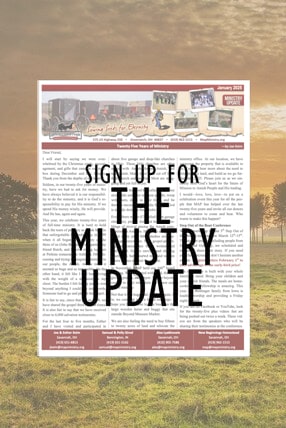Martin Luther and the Reformation
By Paul Miller
November 1, 2017
 October 31, 1517. What is so special about this date? Why should we care about the Protestant Reformation? How sad it is that so many Christians can talk about politics, sports, music, romance fiction books, work, and so much more, yet do not know much about Martin Luther, John Knox, Ulrich Zwingli, John Calvin, and others whom God has used to bring a group of people or even an entire nation back to His Word.
October 31, 1517. What is so special about this date? Why should we care about the Protestant Reformation? How sad it is that so many Christians can talk about politics, sports, music, romance fiction books, work, and so much more, yet do not know much about Martin Luther, John Knox, Ulrich Zwingli, John Calvin, and others whom God has used to bring a group of people or even an entire nation back to His Word.
Martin Luther did not intend to start a big movement that affects us still today. If we do not know our history, we will not know its importance to us. Why did Martin Luther write ninety-five theses? For whom were they intended? Why does it even matter? Why did the Pope condemn Luther? Is the Roman Catholic Church the same today? Why should we examine our own beliefs, our own church, and ourselves in the light of the Holy Scriptures?
If we claim to love God and His Word yet have not spent time reading His Word, we might need to change. If we rely on devotional books or church services yet do not know the Scriptures, we might need to change. If we are comfortable criticizing the world yet get offended and irritated when we are forced to look at ourselves, we might need to change. If we have no problem playing for an hour but cannot pray for an hour, it might be time to examine ourselves.
 If you avoid any confrontation or disagreement, then it might be time to learn from the boldness of Martin Luther; and it is likely that you would have not liked the confrontations that Jesus had with the religious people of His day. If you are comfortable as a lukewarm Christian, you might not like to learn about the Protestant Reformation.
If you avoid any confrontation or disagreement, then it might be time to learn from the boldness of Martin Luther; and it is likely that you would have not liked the confrontations that Jesus had with the religious people of His day. If you are comfortable as a lukewarm Christian, you might not like to learn about the Protestant Reformation.
If you want more, though, if you are ready to put aside the things of the world and set your heart on the things of above, then you can learn much from the sacrifice and efforts of those who returned to the Word of God and proclaimed God’s Word.
The Reformers expected the people to be holy, and they set the example themselves. They studied God’s Word and expected others to do the same. They were certainly not perfect, but neither are we. They said and did some things that we might not like, but they emerged from a thousand years of Bibleless tradition and religious ceremonies.
Let us set our hearts on God and His Word and desire His fulness at any cost. There is much to learn about the Reformation and the need of God’s Spirit to move mightily again in our hearts and in our communities.
— Paul Miller
« Back to Articles







